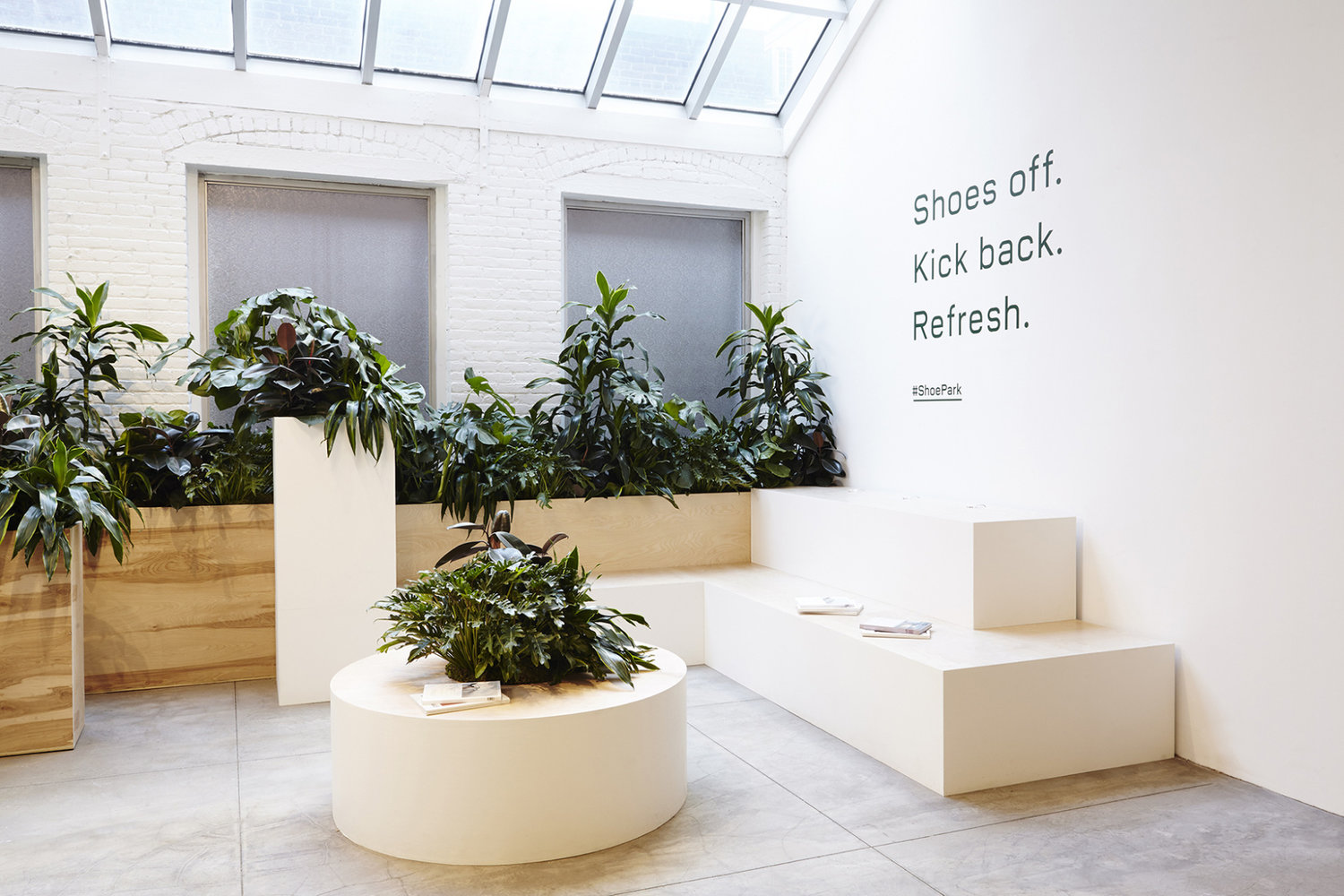The store of the future will become the most powerful media channel available to a brand, offering customer experiences that are the most profitable product a retailer can sell. But to get there, retail as we know it must radically change.

Everlane “Shoe Park”, Photo by ATR
E-commerce will soon drive the majority of sales
Online retail is currently compounding globally at a rate somewhere between 12 and 35 percent, depending on where you do business. In the US, for example, even if nothing else changes, e-commerce will comprise 25 percent of total retail within 6 short years. Perhaps most staggering of all is that within 3 years, three companies Amazon, Alibaba and eBay will control 40 percent of planet earths e-commerce. And this is just a warm-up. Within 15 years, e-commerce will overtake conventional retail sales in developed nations, as a new wave of pervasive technologies take hold.
Physical retail will no longer be a channel for buying
With the vast majority of our daily and weekly needs simply coming to us as necessary, the role and purpose of retail space will no longer be principally to sell products. These spaces will act as living, breathing physical portals into brand and product experiences. They will become places we go to learn, be inspired, see and try new things, experiment and co-create. We will go to these spaces for entertainment, education, connection and community. We will still be able to buy products, but the main focus is going to establish a relationship with the consumer. The way these spaces are planned, built, staffed, managed and measured will look and act nothing like the retail operations of today. Retailers have to stop thinking stores and start thinking stories. Stop thinking product and start thinking productions.
Through this new experience age, the heart will rule. Brands that emotionally engage the consumer and enhance their personal experience will win. In a world where many aspects of our lives are delivered to us via algorithms that are created based on our conscious and unconscious behavior, for brands that want to continue to win, it is essential that they create a deep emotional connection and bring delight and wonder at every touch point.

Everlane “Shoe Park”, Photo by ATR
The economic model for retail will implode
If retailers are fortunate enough to sell something no one else on earth sells, they might dodge this bullet. If not, they better find a new way of making money. This is because the wholesale-to-retail model is coming to an end. Firstly, brands are fleeing the confines of wholesale distribution in unprecedented numbers, largely because they can and secondly because it just makes business sense to do so. Technology has advanced to the point where the ability for brands to reach consumers directly is not only possible, its preferable. Through vertical integration brands cannot only better manage their margins but also their brand image and customer experience.
This will put retailers in a position where the brands they call vendors are also competitors for the same shopper. In essence, even if they win, they lose. By selling more products they only feed the enemy’s war chest. This sets up an untenable situation that private labelling can only partially remedy. Simply, the economic model for retail will require a complete reimagining.
Some smart retail start-ups are already doing precisely this. California-based electronics retailer b8ta treats retail as data and sells consumer engagement analytics back to the brands they represent, offering insights they wouldn’t otherwise get, and giving b8ta a unique and recurring revenue stream. New York’s Story sells experiences, working with brands to curate and produce beautifully executed, in-store events and they’re paid handsomely to do so. These are the sorts of pioneers that will probably lead an entirely new class of experiential retailers over the next decade; retailers that use their physical stores not to sell products but to sell experiences that involve products. These new experiential merchants will be intensely creative masters of retail stagecraft, and experts at executing and measuring consumer experiences.
The physical store will become the most powerful and measurable media channel available to a brand, and the customer experiences that take place there will be the most profitable product a retailer can sell.

STORY Store, New York
So, it’s true that retail may not be dead. Until we let go of the old era we can never fully move forward into a bright new age. If we really want to save retail, we’ve got to let it to a major change.
Credits: Doug Stephens, Neil Woolley
